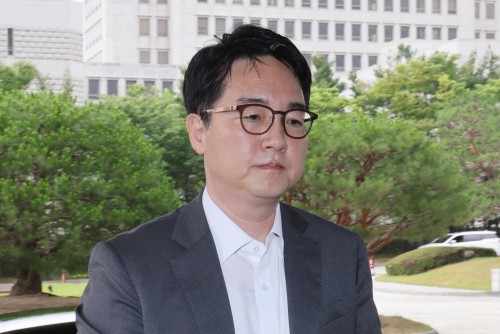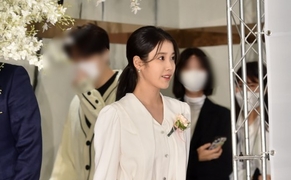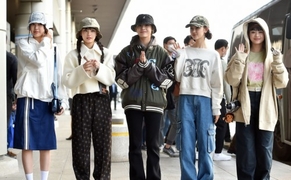 |
| Shim Woo-jung, Prosecutor General of South Korea, who announced his resignation on July 1, speaks at a previous press briefing. / Source: Yonhap News |
President Lee Jae-myung’s administration has launched a sweeping overhaul of top prosecution officials, signaling the start of a leadership shift aimed at solidifying prosecutorial reform.
On July 1, Prosecutor General Shim Woo-jung tendered his resignation after just nine months in office, expressing concern over the administration’s reform agenda. His decision came ahead of a high-level personnel reshuffle that replaced key figures tied to former President Yoon Suk-yeol's inner circle.
The Ministry of Justice announced a one-time reshuffle of nine senior prosecutors. Jeong Jin-woo, head of the Seoul Northern District Prosecutors’ Office, was appointed as the new chief of the Seoul Central District Prosecutors’ Office, while Seong Sang-heon, head of the Daejeon District Prosecutors’ Office, was named the new director general of the Prosecution Bureau.
Among other major changes, Lim Eun-jung, a senior prosecutor from Daejeon, was promoted to head the Seoul Eastern District Prosecutors’ Office, and Kim Tae-hoon of the Seoul High Prosecutors’ Office was named the new head of the Seoul Southern District. Noh Man-seok, who led the narcotics and organized crime division at the Supreme Prosecutors’ Office, will now serve as its deputy chief.
Additional moves include Song Kang, director of inspection at the Justice Ministry, being appointed as head of the Gwangju High Prosecutors’ Office, and personnel shifts between the ministry and investigative units specializing in financial crimes.
The reshuffle follows a wave of resignations by senior prosecutors. In addition to Shim, Deputy Prosecutor General Lee Jin-dong, Seoul Southern District chief Shin Eung-seok, Seoul Eastern District chief Yang Seok-jo, and Planning Director Byun Pil-gun all submitted their resignations on the same day. All but Shim were processed through voluntary resignations.
In his statement, Shim warned that pushing ahead with prosecutorial reform without adequate debate could cause "unforeseen side effects" and emphasized the importance of carefully crafting a criminal justice system that truly serves the public.
Legal analysts say the moves indicate the Lee administration's intent to replace entrenched power structures rather than simply reshuffle personnel due to a change in government. Reports suggest that some of the outgoing officials were informed of reassignments considered demotions and chose to resign instead.
However, resistance from within the prosecution is already emerging. Yang Seok-jo posted a message on the internal network criticizing reform efforts, warning that separating prosecution from investigation could lead to abuses, including politically motivated probes or manipulation of charges.
A former prosecutor-turned-attorney noted, “The key will be whether the administration can secure internal consensus. The resignations were expected, but if the scale widens unexpectedly, it could be seen as an act of collective protest against prosecutorial reform.”
Most Read
-
1
-
2
-
3
-
4
-
5
-
6
-
7





















